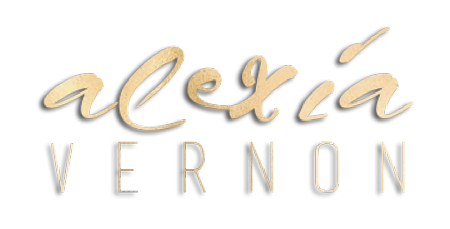Just do you.
You’ve likely heard the phrase before. It might have made you laugh. Or roll your eyes. Or both!
As a speaking coach, much of my work is showing entrepreneurs and visionary leaders how to be themselves when they speak. And lately, just do you has come out of my mouth. A lot. For I see so many brilliant women and men lose their personalities (or take on someone else’s) the minute they start preparing for a presentation, a training, a pitch or a negotiation.
Recently, one of my clients harnessed the moxie to confess, “Lex, I don’t know how to be me as a speaker.”
Word.
It took me over a decade as a speaker to find my “secret sauce”, drop my expert shtick, and be vulnerable in the stories I told. It’s important never to forget that—and more importantly use my struggles and experiences to help other people find their authentic way to be themselves whenever they speak.
The problem is that, for most of us, we don’t know who we are as speakers because we have spent so long trying to be who we think we are supposed to be.
Likeable—but not too people pleasing.
Confident—but not vain.
Funny—but not too much of a ham.
As a result, most of us are in our heads—trying to memorize our words, our mannerisms, and are therefore more connected to our self-talk than to our audiences.
The best speakers don’t get on stage and perform. They get on stage and are present—to everything they are feeling, to what’s happening in the room, and to the intuitive downloads they are receiving (and reacting to and from).
Cultivating stage presence is often as much about what we stop doing—as much as it is about what we focus on. (After all, it’s our drive for an unattainable level of perfection that is usually mucking with our ability to be us.) So here are 3 things I strive NOT to do when I speak so that I can activate my most authentic performance.
I DON’T:
- Ask myself, “What am I going to say next?” Instead, I strive to focus on what is happening between me and my audience, and know that what I’m meant to say is going to come out of me, even if it’s not 100 percent what I intended.
- Wonder about, “What would _____ do?” I look to other speakers for inspiration (particularly with respect to ideas for gestures, vocal variety, and narrative structures) but I don’t try to channel anyone when I speak other than myself. (This cuts down on comparisonitis behind the scenes as well!)
- Evaluate my speaking performance. I may be knocking the socks off of my audience, or I may be boring them to tears, but I don’t allow myself to think about it until after I finish.
I also always do a physical and vocal warm-up (to prepare my mind and body for high performance), AND I always do a guided visualization where I see my audience connecting with me and my words permanently imprinting on their hearts. Then, when I come on stage, I give myself at least 30 seconds to look out at my audience, look into their eyes (or in the vicinity of where their eyes should be when lighting doesn’t allow for me to see individual faces), and I take a few deep, audible breaths to ground myself and prepare for the sacred act that speaking is.
My heart is very full after leading the third incarnation of my signature event, The Spotlight MasterTreat. For five days, (between pre and post event small group intensives), I supported women from the U.S., Canada, Saudi Arabia, and Australia to develop the confidence, presence, materials, strategy, and promotional material to use speaking to spread their ideas, transform the lives of their audiences, and make their speaking profitably integrate with their businesses.
It will take me at least a week to recover from and process all the learning that transpired for me leading this mastermind-meets-retreat for transformational speakers. In the meantime, one thing I know for sure is that many of my favorite moments occurred when a participant stood in front of the room, spoke from her heart rather than from her head, and stopped trying to impress us. When she trusted that whatever came out of her mouth was perfect.
When a woman remembered that her speaking is a divine act of service to the world—just as yours is!
How are you committed to bringing more of your authentic self into your speaking? Please let me know in the comments below.


